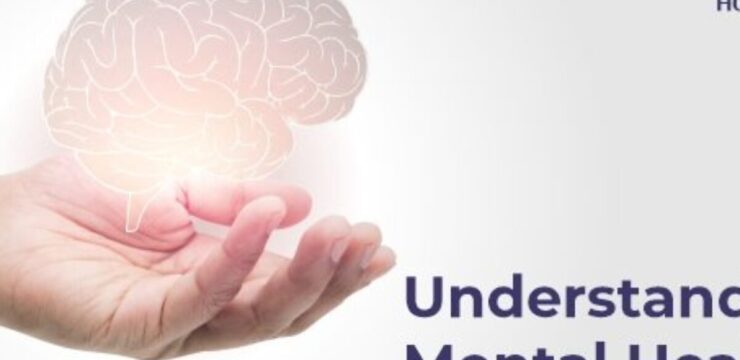Mental health is an essential aspect of overall well-being,
influencing how individuals think, feel, and behave in daily life.
It also affects how people handle stress, relate to others, and make decisions.
Understanding mental health is crucial for fostering a supportive society that prioritizes well-being and reduces stigma.
What is Mental Health?
Mental health encompasses emotional, psychological, and social well-being. It determines how individuals manage stress, interact with others, and cope with challenges. Good mental health allows people to lead productive and fulfilling lives.
Common Mental Health Disorders
Various mental health disorders affect individuals differently. Some of the most common include:
- Anxiety Disorders: Characterized by excessive worry or fear, including conditions like generalized anxiety disorder, panic disorder, and social anxiety disorder.
- Depression: A mood disorder marked by persistent sadness, lack of interest in activities, and low energy levels.
- Bipolar Disorder: Involves extreme mood swings that include emotional highs (mania) and lows (depression).
- Schizophrenia: A severe mental disorder affecting thinking, emotions, and behaviors, often resulting in delusions or hallucinations.
- Post-Traumatic Stress Disorder (PTSD): Develops after experiencing or witnessing a traumatic event, leading to flashbacks, anxiety, and emotional distress.
Factors Affecting Mental Health
Several factors influence mental health, including:
- Biological Factors: Genetics, brain chemistry, and physical health conditions.
- Life Experiences: Trauma, abuse, and major life changes.
- Social and Environmental Factors: Family dynamics, relationships, work stress, and societal expectations.
Importance of Mental Health Care
Maintaining good mental health is vital for overall well-being. Some key aspects of mental health care include:
- Self-Care Practices: Regular exercise, a balanced diet, sufficient sleep, and mindfulness techniques.
- Seeking Support: Talking to friends, family, or mental health professionals.
- Therapy and Counseling: Professional guidance can help manage symptoms and improve coping mechanisms.
- Medication: In some cases, prescribed medications can help regulate mental health conditions.
Breaking the Stigma
One of the biggest challenges in mental health is the stigma associated with it. Encouraging open conversations, educating people, and offering support to those struggling can help create a more accepting society.





